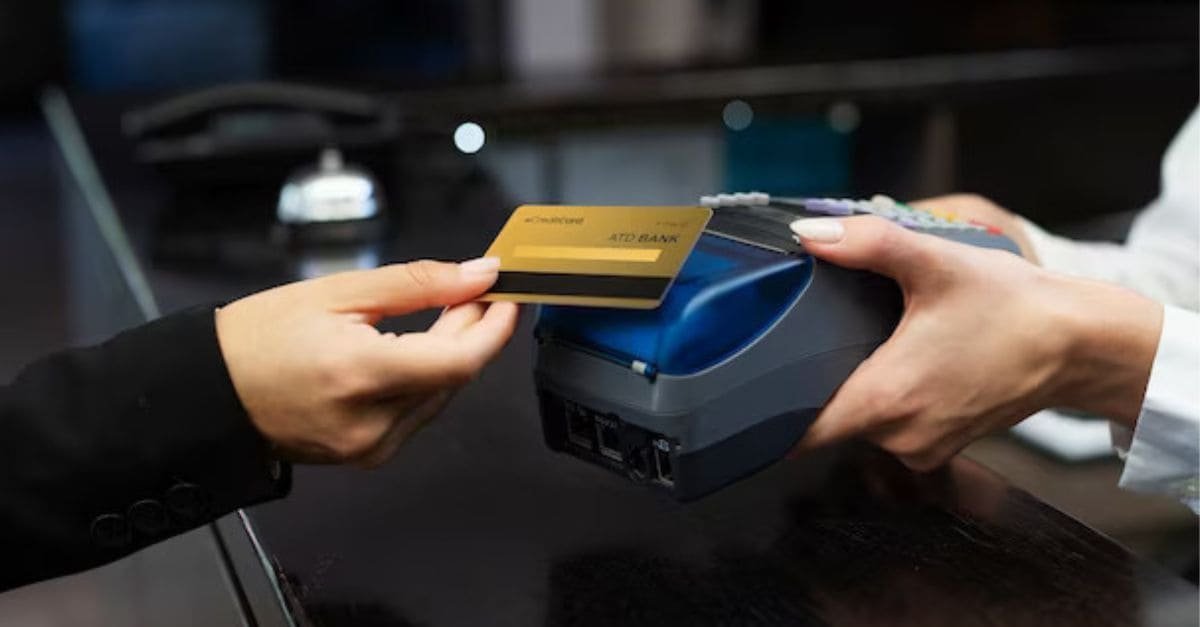
Are you facing legal fees and wondering how you can pay your lawyer? Cash, checks, or bank transfers have traditionally been the primary payment methods. However, in today’s digital age, paying your lawyer with a credit card is becoming increasingly popular. In this article, we will demystify the payment methods for legal services and explore using a credit card to pay your lawyer.
Using a credit card to pay your lawyer can offer several advantages. First and foremost, it provides convenience. Instead of dealing with the hassle of carrying cash or writing checks, you can swipe your credit card or make an online payment. Additionally, paying with a credit card allows you to take advantage of any rewards or benefits your credit card provider offers, such as cashback or travel points.
However, it’s important to note that not all lawyers accept credit card payments. Some may have concerns about the fees associated with credit card transactions, while others may not have the necessary infrastructure to process card payments. Therefore, checking with your lawyer beforehand is always best to see if they accept credit cards as payment.
In this article, we will delve deeper into the pros and cons of paying your lawyer with a credit card and provide some tips on maximizing the benefits of this payment method. So, if you’re curious about this alternative payment option for legal services, keep reading!
Table of Contents
The traditional payment methods in the legal industry
When paying for legal services, the options have traditionally been limited. Cash, check, or bank transfer were the most common methods accepted by lawyers. These methods required clients to physically visit the lawyer’s office or bank to make the payment, which could be inconvenient and time-consuming. Additionally, carrying large amounts of cash or writing multiple checks for legal fees could be risky and cumbersome.
The Ethics of Online Payment Method
One of the most common ways to accept online payments is through credit cards, utilizing a payment processing solution designed specifically for law firms. While lawyers have been accepting credit card payments for legal fees since 1974 (see ABA Formal Opinion 338, dated November 16, 1974), the ethics surrounding this practice are complex and often require careful consideration.
Factors that add to this complexity include:
- There are potential differences in ethical considerations for accepting credit card payments in person versus online.
- The varying rules and regulations depend on the location of a law firm.
As detailed in our comprehensive guide on the ethics of law firm credit card usage, many lawyers may be hesitant to accept credit card payments due to the flexibility they provide clients. Credit cards can be used for various purposes, such as paying outstanding legal fees, depositing funds into a trust account, or reimbursing the firm for expenses. This flexibility may be addressed differently by different state ethics committees.
For example, while four states expressly permit law firms to accept credit cards for all of the above scenarios, eight states prohibit passing on credit card surcharges to clients.
Four ethical reflections for law firms accommodating credit cards
The four ethical questions surrounding the acceptance of credit cards by law firms are:
- Can I accept payment for legal fees and expenses via a credit card?
- Can I accept advance payment of fees via a credit card?
- Can I pass a surcharge to my client to compensate for the processing fees charged by some credit card processors?
- Can I set up recurring customer charges once they have stored a credit card on file with my law firm?
The application of ethical opinions with online payments may differ depending on the state. Law firms should be cautious about accepting online payments through platforms such as PayPal or Apple Pay and carefully consider the circumstances in which they do so.
It should also be noted that the ethical considerations surrounding other forms of online payment are still being developed. While collecting fee payments for services rendered may be deemed acceptable, using certain payment methods for retaining fees or holding unearned funds may not be feasible.
When a firm deposits funds directly into a trust account, there may be conflicts with the rules due to services that transfer the funds into other accounts or charge processing fees. According to Rule 1.15: Safekeeping Property (c) of the ABA’s Model Rules of Professional Conduct, lawyers must deposit any legal fees and expenses paid in advance into a client trust account until these fees are earned or expenses are incurred. This is to ensure that client funds are properly safeguarded.
In addition, lawyers must follow specific rules and regulations in their jurisdiction when accepting credit cards and other online payment methods for their law firm.
It’s also important to regularly check these rules as they evolve. Several resources are available to stay updated on all the legal industry updates. These include staying up-to-date with the latest news and developments in legal technology by following reputable sources like Clio’s Legal Tech News, attending relevant conferences and seminars, and consulting with ethics committees or other knowledgeable professionals. Law firms must follow ethical guidelines when accepting credit card payments to maintain trust and integrity within the legal profession. So, law firms need to stay informed and make ethical decisions when accepting credit card payments.
The rise of credit card payments in legal services
Paying for legal services with a credit card has recently gained popularity. With the widespread use of credit cards and their convenience, many lawyers have started accepting credit card payments as an alternative to traditional methods. This shift has been driven by the increasing digitalization of financial transactions and the desire for more flexible payment options.
Bonus:
Can You Pay Life Insurance with a Credit Card?
Benefits of paying a lawyer with a credit card
Using a credit card to pay your lawyer can offer several advantages. First and foremost, it provides convenience. Instead of dealing with the hassle of carrying cash or writing checks, you can swipe your credit card or make an online payment. This saves you time and effort, especially if you have a busy schedule or live far from your lawyer’s office.
Additionally, paying a lawyer with a credit card allows you to take advantage of any rewards or benefits your credit card provider offers. Many credit cards offer cashback, travel points, or other incentives for using their services. By paying your legal fees with a credit card, you can earn rewards that can be used for future expenses or even save money in the long run.
Furthermore, credit cards offer an extra layer of security. In case of a dispute or fraudulent activity, you can dispute the charge with your credit card company. This can provide peace of mind and financial protection when dealing with significant legal expenses.
Potential drawbacks of using a credit card for legal payments
While there are benefits to paying your lawyer with a credit card, it’s important to consider the potential drawbacks as well. One of the main concerns is the fees associated with credit card transactions. Lawyers who accept credit card payments may pass on the processing fees to their clients, which can increase the overall cost of legal services. Clarifying these fees with your lawyer beforehand is essential to avoid any surprises.
Another potential drawback is the possibility of accumulating credit card debt. You may incur high-interest charges if you’re careless with your spending and fail to pay off your credit card balance in full each month. Budgeting and managing your finances responsibly is crucial to avoid financial strain or negative consequences.
How do you find lawyers who accept credit card payments?
Not all lawyers accept credit card payments, so it’s important to research to find those who do. Start by checking the websites or online profiles of lawyers in your area. Many lawyers mention their accepted payment methods or provide contact information for inquiries on their websites. If you can’t find this information online, don’t hesitate to call or email the lawyer’s office directly. This will allow you to inquire about their payment options.
Additionally, you can consult legal directories or online platforms that connect clients with lawyers. These platforms often provide detailed profiles of lawyers, including their payment preferences. You can quickly identify lawyers accepting credit card payments and narrow your options using these resources.
Understanding the process of paying a lawyer with a credit card
Once you’ve found a lawyer who accepts credit card payments, it’s important to understand the payment process. Typically, lawyers request your credit card information in person or through a secure online portal. They will then charge the agreed-upon amount to your credit card. It is crucial to guarantee secure payment processing and protection of your credit card information.
In many cases, lawyers may ask for your credit card details to authorize future charges against the retainer. Clarifying the payment terms and any potential additional charges with your lawyer is crucial to avoid misunderstandings or unexpected expenses.
Tips for paying a lawyer with a credit card
To maximize the benefits of paying a lawyer with a credit card, consider the following tips:
- Choose a credit card with rewards that align with your priorities. If you travel frequently, a credit card that offers travel points or airline miles can be beneficial. If you prefer cashback, look for a credit card with generous rewards.
- Keep track of your credit card expenses and set a budget for legal fees. Ensure you have enough available credit to cover the charges without exceeding your credit limit.
- Pay your credit card balance monthly to save yourself from interest charges. If necessary, consider setting up automatic payments to ensure timely repayment.
- Review your credit card statement regularly to identify any unauthorized charges or discrepancies. Promptly report any suspicious activity to your credit card company.
- Stay informed about your credit card’s terms and conditions, including any fees or penalties associated with late payments or cash advances.
Alternatives to credit card payments in legal services
If paying your lawyer with a credit card is not an option or doesn’t suit your needs, there are alternative methods of payment to consider. Alternative methods are:
- Bank transfers
- Prepaid cards
- Electronic checks
- Virtual cards
- Digital wallets
- Payment instalments (Buy Now, Pay Later)
Additionally, some lawyers offer payment plans or financing options to help you manage the cost of legal services. These arrangements allow you to pay your legal fees in instalments over an agreed-upon period. In this way, it can be more manageable for some clients.
Conclusion:
In conclusion, paying a lawyer with a credit card can be a convenient and accessible option for many individuals. It offers flexibility in payment methods and the ability to use credit for legal fees. However, it is important to consider the potential drawbacks, such as interest rates and fees associated with credit card payments. Additionally, not all lawyers may accept credit card payments or only accept certain types of cards. It is always best to discuss payment options with your lawyer beforehand and consider all factors before deciding.
FAQs: Can You Pay a Lawyer with a Credit Card?
Can I pay my lawyer with a credit card?
Yes, you can pay your lawyer with a credit card. Many lawyers accept credit cards as a form of payment for their services.
What are the benefits of paying a lawyer with a credit card?
There are several benefits to paying a lawyer with a credit card. These include convenience, increased security and fraud protection, earning rewards or cash back on your purchase, and the option to finance your legal fees through credit card financing programs.
Are there any drawbacks to paying a lawyer with a credit card?
While there may be some benefits to paying a lawyer with a credit card, there are also some potential drawbacks. These include additional fees or interest charges if you cannot pay off the balance each month and the risk of accumulating debt if you use credit cards for multiple legal services.
What should I consider before paying my lawyer with a credit card?
Before using your credit card to pay for legal services, it is important to consider your financial situation and whether you can afford the additional fees or interest charges. You should also ensure that your lawyer accepts credit card payments and inquire about any potential fees for using a credit card.
Can I use a credit card to pay for any legal services?
While many legal services accept credit card payments, it is always best to confirm with your specific lawyer before assuming that they will accept this payment. Some legal companies may only accept cash or checks for certain services, so discussing payment options with your lawyer beforehand is important.






